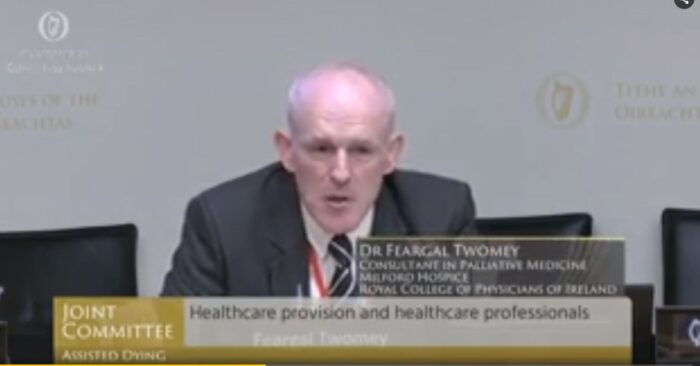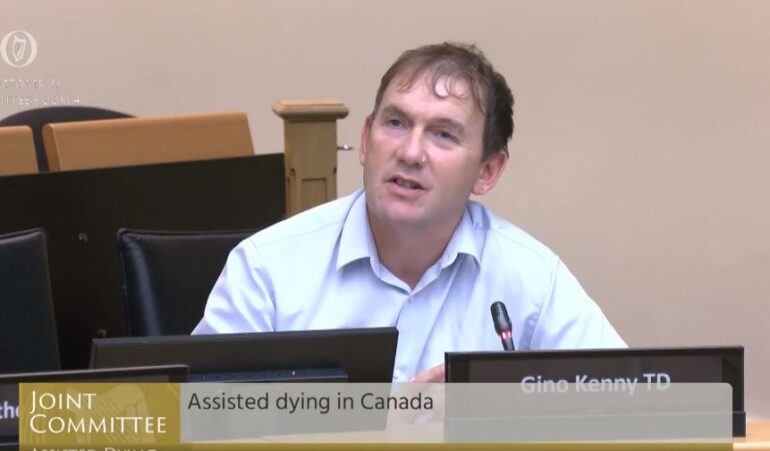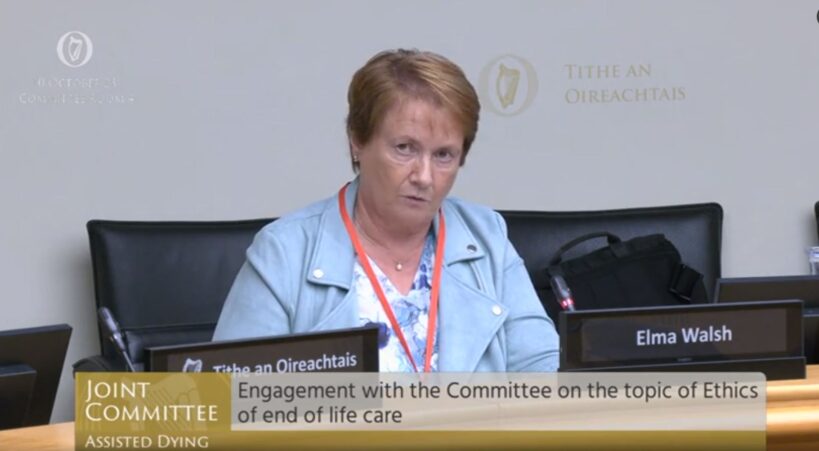
Doctors were before the Oireachtas Committee on ‘assisted dying’ last week, representing a group in favour, a group fully against, and a group mainly against. It’s important to note that while this gives the impression that doctors are more or less evenly divided on the matter, easily the biggest representative body in attendance, namely the Royal College of the Physicians of Ireland (RCPI), is totally opposed to euthanasia/assisted suicide.
Dr Feargal Twomey [pictured] spoke on behalf of the RCPI, and he told the committee that assisted suicide and euthanasia are contrary to best medical practice. The only true safeguard for seriously ill people is that the law does not change, he said.
The RPCI has more than 11,000 members and is the largest postgraduate medical training and professional body in the country.
He stated: “RPCI opposes the introduction of legislation for assisted suicide because, in our view, it is contrary to best medical practice. It is our view that the potential harms outweigh the arguments that can be made in favour of assisted suicide”.
He claimed that such legislation would undermine the efforts of doctors, nurses and healthcare professionals who deliver compassionate and expert care, “risking a shift away from funding, development and delivery of new and existing palliative care services”.
Dr Twomey reminded the committee that recent analysis of data from countries where so-called “assisted dying” is available shows a progressing broadening of the limits that were initially established by the law. In Canada, safeguards have been systemically eroded. In the Netherlands the extension of eligible groups now includes very sick new-born infants, while euthanasia is available in Belgium to children of any age.
Dr Twomey, who works in palliative care, said that the relaxation of restrictions in Canada and the erosion of safeguards have been frightening. Jurisdictions begin with what is presented as a conservative or moderate approach and then go down a slippery slope.
“My concern about the inability for safeguards to be maintained leads me to say the only way true safeguard is that the law does not change”, he commented.
Dr Gabrielle Colleran and Prof. Robert Landers, representing of the Irish Hospital Consultants Association (IHCA) also expressed concerns about legislative changes. “Ethical considerations must always be paramount in health. The ethical dilemma posed by intentionally ending the life of a patient challenges our fundamental commitment to preserving life and could potentially erode the trust that patients place in our care”, Prof. Landers said.
The IHCA has 3,500 members. Dr Colleran invited the committee to consider a report from the ethics committee of the Danish Parliament earlier this month that recommended against allowing euthanasia because, when it becomes an option, it also becomes an expectation aimed at special groups in society.
A small group called ‘Irish Doctors supporting Medical Assistance in Dying’ also addressed the committee. They claim to have about 100 members, out of 16,000 registered medical doctors in Ireland.
Presenting on their behalf, Dr Brendan O’Shea said that both euthanasia and assisted suicide should be available to adults who are within six months of death or have an incurable terminal condition causing progressive physical deterioration. This last criterion is potentially very broad and has no time limits. Would it include people with MS or Parkinson’s Disease who might be years away from death? Presumably it would. What about dementia patients? Ultimately, it is terminal also. In fact, Dr O’Shea specifically mentioned dementia in his presentation. He spoke about a dementia patient who applied for ‘assisted dying’ in Canada. He was approved. Dr O’Shea did not say he was opposed to this. “At the moment [our italics], we are not recommending that dementia be considered a primary qualifying condition on its own”, he said.
Dr O’Shea estimates that about 1,000 to 1,500 people would avail of ‘assisted dying’ over the next three to four years, if introduced in Ireland. This is guesswork, of course. It could be less, or it could be more. His figure would account for around 1pc to 1.5pc of all deaths in Ireland.
Commenting on the non-medical motivations that could lead to a request for assisted suicide, Dr O’Shea said that “for ourselves, we have to consider the legitimacy of not wishing to be a burden. It is certainly an imperative of a kind society that nobody should have to consider this, but, for me, it is a personal decision.”
This would seem to indicate ‘assisted dying’ should be available on very wide grounds indeed.


